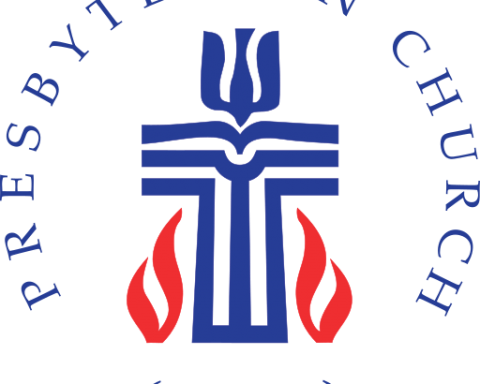
Committee 06 at GA 223
At the 223rd General Assembly, Committee 6 handled issues of Church Polity and Ordered Ministry. It saw quite a bit of business, but there were three main issues before the committee: providing family and parental leave, responding to to abuse by church leaders, and considering ordination of elders not serving on a session.
Family Leave
There were five different resolutions about family leave before Committee #6, including an Advocacy Committee on Women’s Concerns resolution calling for a minimum of twelve weeks paid for employees of the denomination including employees of local churches.
The committee heard heartbreaking testimony from several people about the struggles of working with their local church to take parental leave after the birth of a child. Many churches struggle with the financial implications or logistics of pastoral coverage. For other churches, the struggle is to understand why a female pastor needs twelve weeks to recover after the change to her body during pregnancy and the ‘fourth trimester’ (the weeks following birth).
Beyond churches’ financial constraints or convictions relating to providing leave, there are also difficulties of implementation. One way for the GA to act is to adjust the minimum terms of call as defined by the Book of Order, but not all all employees are covered by these policies. The issue does not just impact installed pastors, but also ordained teaching elders serving in non-pastoral roles, as well as other employees who are not ordained.
This complexity was reflected in the fact that the Presbytery of Boston alone introduced three separate overtures addressing different aspects of the issue: 06-13 instructing the Board of Pensions to include 12 weeks of parental leave; 06-14 to include paid family leave in the Terms of Call; and 06-15, which would have Certified Christian Educators and Certified Associate Christian Educators included in the Board of Pensions with “paid family leave of at least twelve weeks.”
Note that some (but not all) resolutions before the assembly appeared to use “family leave” and “parental leave” interchangeably—where nationally, “family leave” can also include taking care of another ill family member. “Parental leave” more specifically applies after adding a child to the family, either by birth or adoption.
In light of the many dimensions of providing family leave to different groups of church employees, Committee #6 recommended establishing a task force to study these and other issues related to family leave. The Advisory Committee on Social Witness Policy, the Board of Pensions, and the Advocacy Committee on Women’s Concerns will advise the taskforce. The goal of this taskforce is to understand the issues related to family leave at all levels of the church, as well as what are the gifts and capacity of different levels of the church to support our most precious resource, our people.
Church Leader Abuse
Much of this Committee’s work was focused was considering amendments to the Book of Order, including an amendment to D-2.0203b to include sexual abuse (as defined by an earlier section) to be “contrary to scripture and the Constitution of the Presbyterian Church.” This amendment passed the General Assembly and will be sent to the presbyteries for approval. Other changes concern the process after a teaching elder renounces their ordination while under investigation for abuse. The proposed changes, which will now go to the presbyteries for approval, would require the pastor to resubmit to the investigation if they wish to volunteer or work at any level of the Presbyterian Church. This change closes a loophole that left victims without justice. Prior to the change, abusers could simply leave the denomination without facing punishment for their actions and then later return without facing the reason for their hurried departure.
Ruling Elders’ Service on Session
Another contentious issue, ordaining ruling elders not serving on a session, was a proposed change to the Book of Order that was not passed by the General Assembly. The Presbytery of Monmouth wanted young adults to be able to serve on presbytery or synod committees, but they often could not serve because they were not ordained as ruling elders. It is often impractical to ordain these young adults ruling elder positions that involve service on a session. On the other side of the issue were concerns about ordaining to a specific role and whether the ordination of would last beyond the specific service’s term.
While in committee, several YAADs (Young Adult Advisory Delegates) shared stories, either about parents who worked in the church, but could not be ordained due to their paid position as a Director of Christian Education in a church where she was not a member (the church required non-membership) or about YAADs who felt called to serve in a ruling elder capacity while at college in their campus ministry, but could not make the monthly session meetings while at college. Item 06-08 had major implications for what it means to be called as a ruling elder, and for what it means to serve the denomination. The committee voted 31-20 in favor, but in the end, due to wording confusion, the General Assembly voted down the change. The underlying questions remain, about how best to facilitate service for younger church members.
***
AUTHOR BIO: Rachael Eggebeen, Co-Chair of the Advisory Committee on Social Witness Policy, is an 8th grade Social Studies teacher at Apollo Middle School in Tucson, Arizona (Presbytery de Cristo, Synod of the Southwest), a Title I school composed of majority Latinx and Native American students. She earned an MA in Near Eastern Studies with an emphasis in Islam from the University of Arizona, an MAT from Fuller Theological Seminary in Biblical Languages and Theology, and a BA in history and political studies from Dordt College, Sioux Center, Iowa. She is married to Ed and mother to Elsie.






Unbound Social